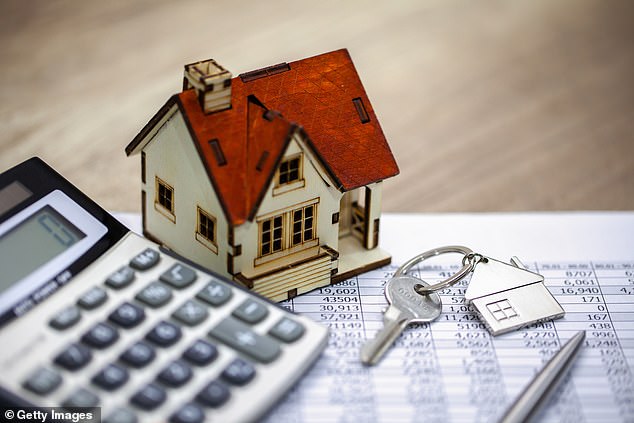
Soaring interest rates have left households a combined £2.1trillion worse off as property prices and pensions continue to tumble in value.
Household wealth has slumped by almost a quarter since 2021, estimates from the Resolution Foundation think-tank reveal.
The total worth of households peaked at 840 per cent of the total economy in 2021 but has slumped to about 650 per cent in the first quarter of 2023.
This is the largest decline as a proportion of the economy since the end of the Second World War, creating a major headache for homeowners and pensioners.
If the £2.1trillion combined loss was divided by the estimated 28.2million households in the country it could in theory mean families have lost £74,468 each.
![Household wealth has slumped by almost a quarter since 2021, estimates from the Resolution Foundation think-tank reveal [File image]](https://i.dailymail.co.uk/1s/2023/07/17/00/72229947-0-image-a-58_1689550937949.jpg)
![Household wealth has slumped by almost a quarter since 2021, estimates from the Resolution Foundation think-tank reveal [File image]](https://i.dailymail.co.uk/1s/2023/07/17/00/72229947-0-image-a-58_1689550937949.jpg)
Household wealth has slumped by almost a quarter since 2021, estimates from the Resolution Foundation think-tank reveal [File image]
Britons’ tumbling wealth can be blamed on the Bank of England’s rapid interest rate-rising cycle, the think-tank said.
After 13 hikes since late 2021 in a bid to drive down high inflation, the Bank’s base rate sits at 5 per cent and experts estimate it could rise to 6.25 per cent by Christmas.
This has caused mortgage rates to rocket, house prices to fall and the price of government and corporate bonds to plummet – reducing the value of pensions.
But the report – part of a partnership with the abrdn Financial Fairness Trust – suggests that persistently higher interest rates could lower house prices in the long run and make it easier to achieve a decent standard of living in retirement by raising rates of return on pension savings.
And although rising rates are painful for current homeowners – with the 1.7million households re-mortgaging next year set to see their annual repayments rise by more than £3,000 on average – falling house prices will benefit youngsters trying to get on the housing ladder.
Ian Mulheirn, of the Resolution Foundation, said: ‘Over the past four decades, wealth has soared across Britain, even when wages and incomes have stagnated.
But rapid interest rate rises have ended this boom and brought about the biggest fall in wealth since the war, of £2.1trillion.’
Compare true mortgage costs
Work out mortgage costs and check what the real best deal taking into account rates and fees. You can either use one part to work out a single mortgage costs, or both to compare loans









